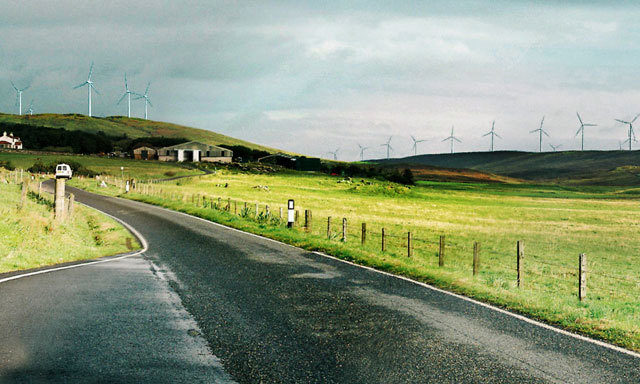
A bid by Donald Trump to argue against the Scottish Government in a court battle over a Shetland windfarm was rejected by civil appeal judges yesterday.
The American tycoon has already gone to court to challenge a £230millon offshore wind development near his golf resort at Menie, Aberdeenshire.
His lawyers also wanted to intervene in an appeal brought by Scottish ministers over the 103-turbine Viking windfarm in Shetland.
Judge Lady Clark of Calton ruled against the Scottish Government in that case earlier this year. The appeal is due to be heard in early 2014.
Yesterday, the Lord Justice Clerk, Lord Carloway, sitting with Lady Smith and Lady Dorrian, rejected the Trump application at the Court of Session in Edinburgh.
Lord Carloway said: “The Trump Organisation and its related companies are already involved in a litigation where they can seek the remedy which they wish to achieve.”
He said that, if the judicial review challenge to the European Offshore Wind Deployment Centre near Aberdeen goes against them, there would be an opportunity to return to the civil appeal court.
Gordon Steele QC, for the Trump Organisation, told the court that there was an identical competency point to that in the Shetland case.
He said they had become aware that, for financial reasons, Sustainable Shetland, which objected to the Viking project and successfully fought a judicial review over it, did not intend to argue the competency point.
Mr Steele said they did not think it right that a matter of such importance should proceed without another party providing contradictory arguments.
He said they would have been prepared to argue that Lady Clark was correct in the Shetland case, but would also develop the argument by considering the issue of offshore generating stations or turbines.
The court has now appointed an independent QC to provide advice on the issue.
The appeal judges also rejected a bid by commercial windfarm developers to enter the Shetland case.
Lord Carloway said the judges did not consider in terms of a rule of court that they had a direct interest in the matter and they had their own route to challenge decisions.
They also refused a move by the Royal Society for the Protection of Birds to become involved in the Shetland case over the interpretation of the 2009 Wild Birds Directive.
